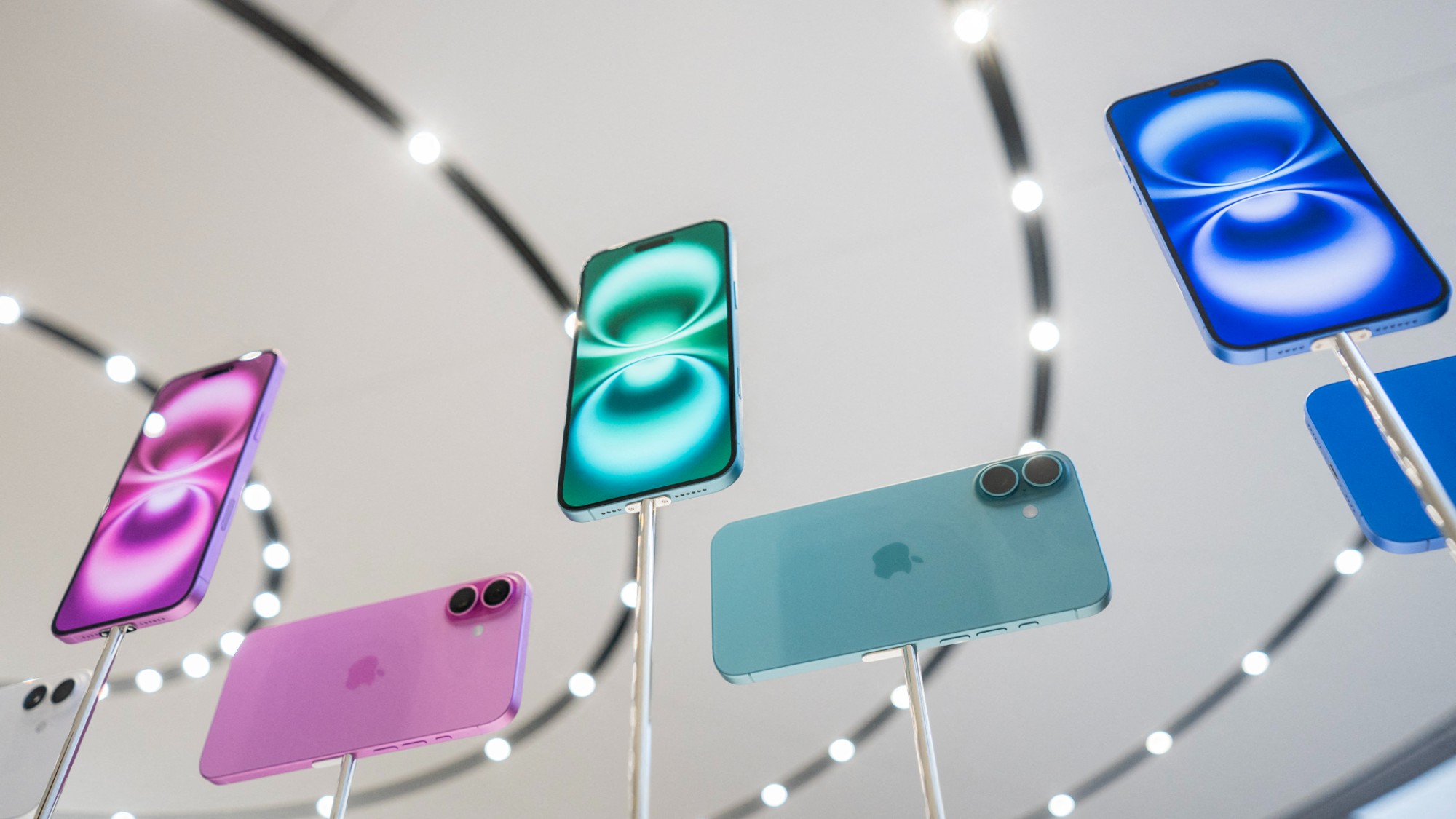How will the introduction of AI change Apple's iPhone?
'Apple Intelligence' is set to be introduced on the iPhone 16 as part of iOS 18


A free daily email with the biggest news stories of the day – and the best features from TheWeek.com
You are now subscribed
Your newsletter sign-up was successful
Apple has unveiled the next generation of its most notable product: the iPhone 16. While the tech conglomerate is known for consistently putting out new versions of its devices, the smartphone will be the first iteration of the company's to feature artificial intelligence capabilities; this has some wondering what it will mean for the future of the brand.
Apple's AI system, dubbed "Apple Intelligence," will also be available on the next-gen iPads and Macs as part of iOS 18. Apple Intelligence can "help you write, express yourself, and get things done effortlessly," according to the company. It will be integrated across Apple's writing software, image software and personal assistant Siri, and also has elements of generative AI such as the ability to summarize emails.
The company seems to be trying to paint Apple Intelligence as something new within the AI realm; it never even mentioned the words "artificial intelligence" during the iPhone 16's rollout presentation, CNN reported. But when it comes to Apple Intelligence, questions over its long-term plan remain, and consumers "may want to temper their expectations," said CNN.
The Week
Escape your echo chamber. Get the facts behind the news, plus analysis from multiple perspectives.

Sign up for The Week's Free Newsletters
From our morning news briefing to a weekly Good News Newsletter, get the best of The Week delivered directly to your inbox.
From our morning news briefing to a weekly Good News Newsletter, get the best of The Week delivered directly to your inbox.
What did the commentators say?
The "integration of AI into Apple's popular devices will allow users to customize their home screens even more, get better answers from its voice assistant, and even access ChatGPT directly from their device," said Rocio Fabbro at Quartz. Many in the industry "have high hopes for the fresh tech, which will be one of the biggest operating software advances that Apple has introduced in years." This could be notable given that Apple's smartphone is "long overdue for a turbocharged upgrade cycle: Some 300 million iPhones worldwide have not been upgraded in more than four years."
These new iPhones will "represent a big moment for generative AI, which can answer questions, create images and write software code," said Tripp Mickle at The New York Times. Even as a "latecomer to the AI party, Apple is in a position to take the technology mainstream — or sow fresh doubt about its viability if it doesn't live up to expectations." Wall Street is likely "looking to Apple for reassurance that customers want AI," especially given that Apple "has shown over the years that it can enter a market late and redefine it, as it did with digital music players, smartphones and smartwatches."
Apple reportedly "considers the opportunity in AI so important that it canceled one of its big bets — a $10 billion project to develop a self-driving car — and reassigned hundreds of engineers to work on the technology," said Mickle. But Apple Intelligence will "also require top-of-the-line processing power," which means that for now, the "only iPhones that will have enough firepower to run Apple's AI will be the iPhone 15 Pro and Pro Max and the new iPhone 16 lineup," said Katelyn Chedraoui at CNET. This is "disappointing for folks like me who may want to try out Apple AI but don't want to break the bank with an upgrade." Many "smartphone users don't find AI features helpful," and a recent CNET survey found that "only 18% of smartphone users cite AI integrations as their motivation to upgrade their devices."
What next?
Apple has promised a beta test of Apple Intelligence this October, but has "actually provided little new information about when Apple would release which AI perks," said Business Insider. And this is only in regard to U.S. users, so the "timeline is also even longer and less certain depending on which language you speak." English-language users in "Australia, Canada, New Zealand, South Africa and the U.K. will have access to the AI features in December," while "users who speak Chinese, French, Japanese and Spanish can expect them sometime in 2025."
A free daily email with the biggest news stories of the day – and the best features from TheWeek.com
But even with the beta rollout looming, Apple AI remains "charmingly unfinished," said Vox. Its "standout features are supposed to include privacy and a Siri that actually works. But none of it works quite yet, and despite its imminent launch, it probably won't for many months." One "potential limitation Apple is facing in its quest to bring more advanced AI features to its users is its commitment to privacy," Vox added, which has often proved problematic with other AI programs.
Justin Klawans has worked as a staff writer at The Week since 2022. He began his career covering local news before joining Newsweek as a breaking news reporter, where he wrote about politics, national and global affairs, business, crime, sports, film, television and other news. Justin has also freelanced for outlets including Collider and United Press International.
